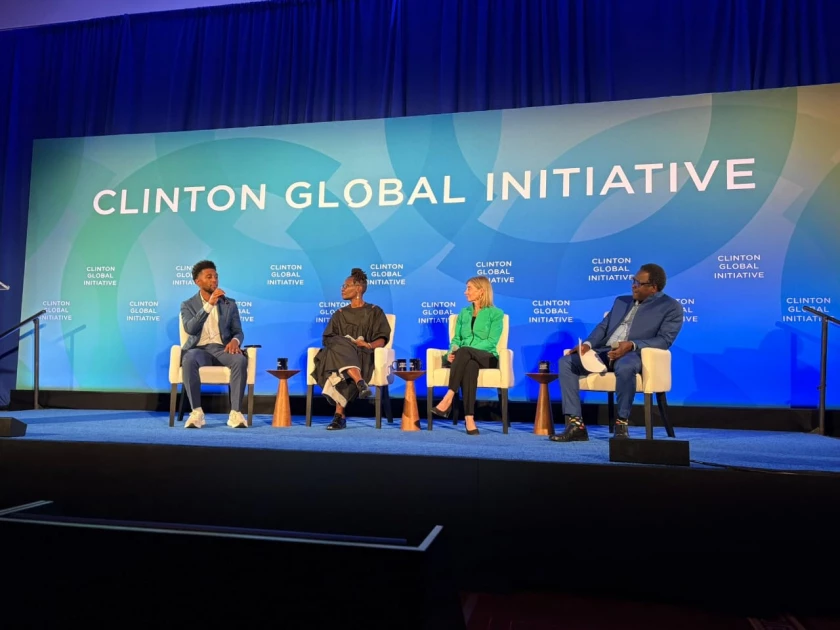Gov't urged to embrace civil society to improve service delivery


Audio By Vocalize
As governments across the world lose strength under the weight of overlapping crises, civil society is stepping into spaces once reserved for the state.
At the Clinton Global Initiative (CGI) 2025, this pressing global reality
took centre stage during the session titled “Civil Society Filling the Gap,” convened in New York City on
Wednesday.
Moderated by Dr. Kennedy Odede, founder and CEO of Kenya’s Shining Hope for Communities (SHOFCO), a high-level panel brought together voices from vastly
different worlds but united to deliver where governments cannot.
Panelists included Linda Lindborg, President and CEO of David and Lucile Packard Foundation, Dierdre Williams, Director of Grants at the Open Society Foundations, and Brandon Scott, the Mayor of Baltimore City, each offering
insights into the role of nonprofits, foundations, and local governments in
bridging society’s most painful gaps.
“The world is becoming more imbalance. We
are facing many challenges, but how did we find ourselves in the situation we are
now?” Dr. Odede posed in his opening remarks.
The SHOFCO founder said the civil society
is increasingly being called upon not just to respond to crises, but to fill
chronic gaps in healthcare, education, clean water, social protection, and
governance.
“In many parts of the world, especially in
the slums where I come from, civil society has become the safety net. It is in
the forefront to fight for the rights of the people,” he stated.
However, for Dr. Odede, despite the
challenges surrounding the civil society, he sees light at the end of the
tunnel.
“We should not give up. We must realise
that power belongs to the people; we must go back to the community. We have to
keep on organising, speaking up, and not give up,” he said.
Baltimore
Mayor Brandon Scott, the youngest mayor in the city's
history, spoke passionately about how his administration is leaning on civil
society to transform urban governance.
“You cannot fix broken systems from the top
down. You need people who are from the community. The people closest to the
problem are closest to the solution.
“While growing up as a black kid in
Baltimore, I used to be seen as a problem to be solved, not someone to be
invested in.
“Our job as leaders is to make sure that we
are aligned with the people. They have the power,” he said.
Lindborg brought a funder’s perspective to the conversation, highlighting
how philanthropy must change its model to truly support grassroots power.
“Too often, civil society is expected to do
more with less, in the shadows of shrinking state responsibility. Philanthropy
must shift from project-based, top-down models to long-term, trust-based
investments in community-led systems,” Lindborg said.
She referenced the Packard Foundation’s
commitment to locally-led development,
noting that community-led organizations often outperform larger institutions in
adaptability, trust, and sustainability.
Representing the Open Society Foundations, Dierdre Williams urged the
stakeholders not to reduce civil society to mere service delivery agents.
“Yes, we deliver services. But we also
speak truth to power. If we are forced to choose between being efficient
contractors and courageous critics, we all lose,” William said.
Dr Odede, whose organisation SHOFCO
supports over 4.1 million people in Kenya’s informal settlements and rural
communities annually, emphasised that community-based organisations are not
merely service providers; they are actors reshaping how governance is done.
“When you come from the slums, you’re told
you don’t matter. But we have built schools, clean water systems, health
centers, and even a community-run aerial data system to map public services.
Who says people from the margins can’t lead?” he asked.
Yet he warned that expecting NGOs to do
more with less was unsustainable:
“If we expect civil society to carry the load, we better fund them like we fund agencies. You can’t run a city with volunteers and goodwill alone.”


Leave a Comment